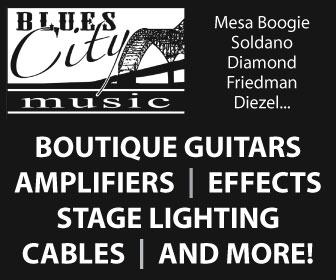Mole
Logs in the Mainstream
With the Jersey shore's outpouring of singer/songwriters, both male and female, grabbing best male solo act at the Asbury Music Awards is a tough win. With his humorous, society-mocking lyrics, and thin, screeching voice, Mole found himself in the winner's circle. This win was well-deserved, as artistic awards are designed for those willing to push their own limits.
Mole is able to expand his musical parameters with an acoustic guitar and a thesaurus. He also has the help of his band, Logs in the Mainstream, which includes a drum machine as one of its official members.
Mole doesn't compromise in his mockery. While his words are big, they also remain focused on his message. Subjects range from serious to lighthearted. Some examine at the absurdity of the upper class, while others just mock it.
"The knives / The napkins / The ashtray / The icebin / The bones / The wrappers / The half-eaten chicken / The gum / The high-chairs / The amber anti-septic," opens "The Busboy" from Logs in the Mainstream's CD "Acaustic". Mole lyrically climbs into his story of a cynical, average restaurant employee and examines closely his anger at what he sees. "Four white guys in ties look at me, like I'm the lowest form on earth, then they back stab over the bill / and I wonder who's the one with self-worth." The song simply and humorously looks at the busboy's day, but concludes with a serious message, "But to me you're all the same / I clean your mess and head out on my way."
Mole's pronounced vocals make these messages ring clearly on the listener's ear. They emotionally grab your attention and don't let go. He backs them up with a loud, pronounced acoustic strum that doesn't quit on the listener. His sound, like his personality, is hard to pigeonhole. His lyrics broadly deal with social angst. Younger artists who address these topics often lose their subject in a word-spinning rant. Mole's lyrics are a direct and simple look into one man's scope of the reality he perceives.
Mole posses control of his craft. No throwaway words or phrases find a place in his songs. Each is carefully planned out and his guitar chording follows the same route. This makes his message all the more clear, bringing his message to the listener's ear. With his wit and challenging word play, Mole both provokes thoughts and raises questions through his music.
What is the difference between playing solo and in Logs in the Mainstream?
A nice reduction in pay.
Kidding aside, playing solo is nice for people to really hear the basic building blocks of songwriting. It also helps a lot for people to hear lyrics, usually because solo acoustic shows are at coffee houses. I tend to be a bit more hyper than most coffeehouse performers though so there's always some reaction.
But no matter how energetic you are, no one in a bar listens to a solo acoustic act unless the whole night is acoustic acts. When you walk up there with no bass and no drums, people start talking about their day and you get drowned out pretty fast. So the bar scene is strictly full band only. The crowd response is a world of difference.
It's ironic. People go to a coffeehouse to wake up, but they want to hear more subdued music. They go to the bar to unwind from work, but they want loud music.
Does working with Logs help you develop songs?
Well, I kind of see them as one in the same. Really, a "Logs song" and a "MOLE song" is kind of the same thing. Usually the way it works is: I take the basics of what I wrote and head on over to [Logs in the Mainstream's bassist, the Honorable] Bob's house. I show him what I got and he comes back a week later with a bass line idea and suddenly I see where the song is supposed to go. Working with Bob is a dream because he really knows how to compliment what I'm doing without taking over the sound.
How did you develop your songwriting style?
Simple. I listened to the radio and did the opposite of what they did.
Actually, I think every artist knows they have a style, but not everyone recognizes he or she is developing it. That's Logs all over. Our ideology was just to be unafraid to tackle any style and make it our own.
What is the general message of your music? Why do you use humor in many of your songs?
Follow your inner voice. No one knows the secret of your own happiness but you, if you listen. Bureaucracy equals hypocrisy. Life is full of some wonderful ironies. Those are the Logs basics.
As to why I love humor ... Humor is one of the most underrated tools for growth. Hypothetical example: man is stubborn. His wife tells him he's too stubborn. He denies it. His boss tells him he's too stubborn. He denies it in a more-than-miffed manner. His kids tell him he's too stubborn. He denies it angrily.
That night he goes and sees a comedian. The comedian makes a joke about stubborn people. And the man belly laughs. That moment is when the walls go down. That moment is when we can accept ourselves for all our good and bad and still smile. Within that moment is how humanity can save itself. And, yes, I seriously believe that.
Is there a certain state of mind you get in to write a funny song?
Not really. Usually the great line hits me first, and then I work it into the song. When I'm in the right state it all falls into place. When I'm in the wrong state, it sounds forced.
My biggest issue right now is recognizing when I'm forcing it. When you're sitting there and sitting and sitting and can't come up with a single line, that's when you need to go out amongst the world. It's like you need to refill yourself with material.
What other songwriters do you consider funny?
That's pretty tough. Most songwriters avoid humor because they are petrified of being seen as "not serious". For most artists, if you make people laugh in your art, all this fear arises that you'll be seen as a "joke". Yet, most of what makes it on Top 40 radio is a joke, but that doesn't stop most artists from seeing it as "successful".
Anyway, I always had a soft spot for punk bands that were viciously funny, like Dead Kennedys or Alice Donut. Early They Might Be Giants. Screamin' Jay Hawkins. A Halo Called Fred. Over the past few years, I've discovered Randy Newman and Lyle Lovett. When they're funny, they are genius. But, all these artists are well-rounded. They write more than just humor. I mean, Zappa, Primus and Ween all have some really powerful serious songs. And artists from Ice-T to Queen never hesitated to put something funny on a CD.
How did you develop your overall sound, with the weird chording and all?
Man, that's a really great question! Sometimes I start by making up a chord that sounds just strange, like it couldn't sound good in anything. And then I write a song around it that makes it work. Like it belongs there.
Are there any contemporary bands that impress you? Why or why not?
There's always good stuff out there. You just have to look for it. The anti-folk scene up in NYC is really great. Moldy Peaches 2000 is getting a lot of press, well deserved. But I really also like Dufus, Major Matt Mason USA, Sharon Fogarty and Joie/DBG. Mike Ill is really cool. And, of course, Lach has some really great songs. They all are focused on the songwriting craft and each one is very unique.
Locally, I know Mike Grau and Rachel are coming out with some solo acoustic CDs. Also, I know Mike Ferentino should be coming out with another Amazing Meet Project CD soon. These guys are the anti-folk equivalents in Jersey. My label-mates on Corporate Greed, Alice B. Talkless and Dead C Monkeys, keep threatening to release a new CD ... and I am waiting hungrily.
On the heavier side, I've heard bits and pieces from Mindless Self Indulgence. I love [the] combo of that singer's voice and their drum programming! I also really like Flogging Molly. They're very Celtic, yet still heavy.
Jazz-wise, Dmitri Guervich Quintet is a great combo of jazz and ... whatever. And Mainstem are, in my opinion, the last standing bastion of hard-bop.
What writer or artist would you mostly compare your work to?
I'd say we have the sound of Ben Folds Five, except more hyper and world beat. Maybe with the lyrics of Jello Biafra meets Randy Newman. Is all that really possible?
What are your upcoming plans, gigs, etc?
Bob and I are starting the mix-down process for the third Logs CD, "The Self, the Shelf, and the Store". It will probably be our most accessible yet. I'm really excited about it.
Gig-wise, I'm doing solo shows over at the Internet [Cafe] in Red Bank every last Thursday through the summer. We have a show on May 17th at this coffeehouse in Somerville called the Sanctuary. That one's with some Corporate Greed (www.corporategreed.com) bands and it's going to be very interesting.
Once the CD is in the pocket, I hope to start doing some shows again in NYC, Boston and DC.

Josh Davidson has written music feature articles for Jersey Style and served as the Jersey Shore rock columnist for Steppin' Out Magazine. Other music writing credits include Aquarian Weekly, Jersey Beat, Backstreets and njcoast.com. He has written free-lance for the Asbury Park Press' Community Sports section and has written featured articles for its news section, as well as covering campus news and sports weekly for the Signal, the College of New Jersey's (formerly Trenton State College) student newspaper. He has worked as a staff writer for The Independent, and his work for Greater Media Newspapers has also been published in the News Transcript. He is a former beat reporter for the Ocean County Observer who presently is a news writer for Symbolic Systems Inc. supporting the US Army's Knowledge Center. His music writing covers a vast range of topics, from the current cover band craze, highs and lows of the original scene, to the early days of the Jersey Shore rock scene in Asbury Park. He is also a musician, having written hundreds of songs as a singer/songwriter, and playing them out as a solo/acoustic artist. He has also played with cover bands, including It Doesn't Matter, and several original bands, including as the guitarist for the solo project of singer/songwriter Dave Eric. He continues to work on solo material and is presently the guitar player for Jersey Breeze.









